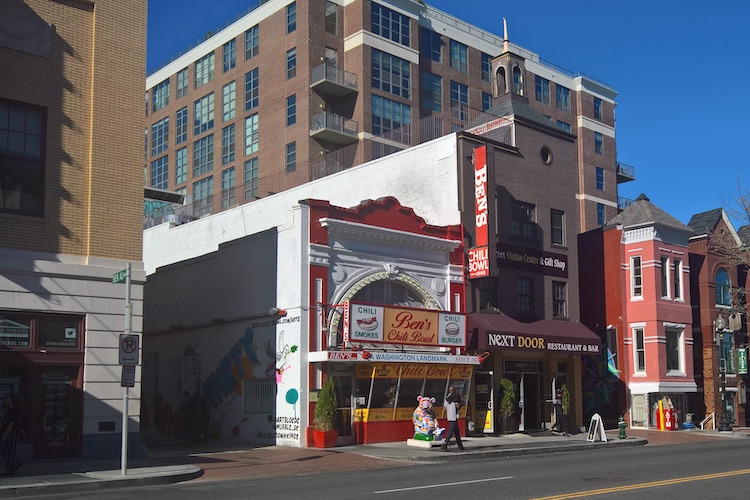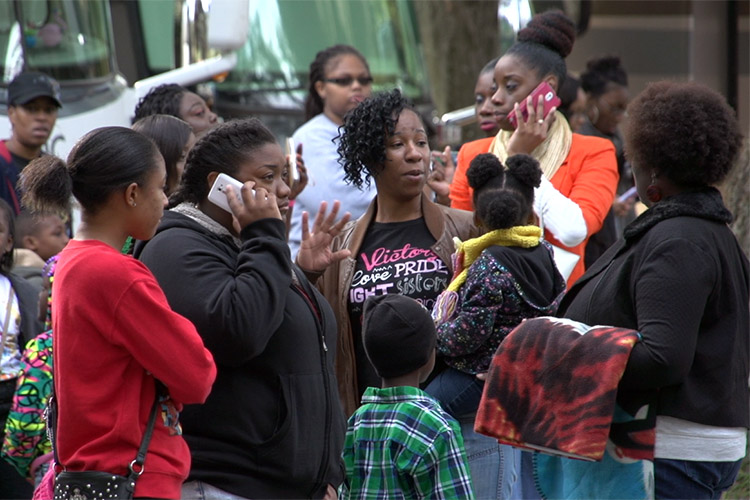CORAAL Components

CORAAL:ATL (Atlanta, GA 2017)
CORAAL:ATL consists of 13 primary speakers across 14 recordings. The speakers for these recordings are part of a modern Atlanta friendship sphere, where many of the speakers were not born and raised in Atlanta, but rather moved to the city from other locations. Speakers range in age from 22 to 40 years old. Located in Georgia, as of 2020, the city of Atlanta had a population of 498,715, with the black population accounting for 46.7% of that population, while the Atlanta Metropolitan area was over 6.1 million. The city is home to the Martin Luther King Jr. National Historic Site, which is to remember and honor African American history throughout the Civil Rights Movement and Civil War.
Farrington, Charlie, Tyler Kendall, Patrick ‘Slay’ Brooks, Emma Mullen, and Chloe Tacata. 2020. The Corpus of Regional African American Language: ATL (Atlanta, GA 2017). Version 2020.05. Eugene, OR: The Online Resources for African American Language Project.
CORAAL:DCA (Washington DC 1968)
CORAAL:DCA consists of 68 speakers across 74 recordings, originally collected as part of Ralph Fasold’s (1972) foundational study of African American Language in Washington, D.C. (Fasold 1972). The speakers were recorded between March 1968 and August 1969, with dates of birth ranging from 1891 to 1958. The 68 speakers selected for CORAAL are not the exact same set of speakers analyzed by Fasold (1972). We have selected speakers from Fasold’s interviews to best represent four age groups and three social class groups, although a balanced demographic matrix is not possible given the emphasis of the original project on young speakers. Metadata for DCA include broad information about speakers’ demographic backgrounds, including fine-grained SEC indices from Fasold’s original work.
Fasold, Ralph W. 1972. Tense marking in Black English: A linguistic and social analysis. Arlington, VA: Center for Applied Linguistics.
Kendall, Tyler, Ralph Fasold, Charlie Farrington, Jason McLarty, Shelby Arnson, and Brooke Josler. 2018. The Corpus of Regional African American Language: DCA (Washington DC 1968). Version 2018.10.06. Eugene, OR: The Online Resources for African American Language Project.
CORAAL:DCB (Washington DC 2016)
CORAAL:DCB consists of 48 primary speakers across 63 audio files, collected specifically for CORAAL. The speakers were recorded between July 2015 and December 2017. Speakers were collected through a friend of a friend network to fill a 4 x 3 demographic matrix similar to that for DCA. The socioeconomic groups for DCB are meant to capture broad social strata and are qualitative labels meant to help orient users around the ordering. Theses are not meant to represent theoretically motivated socioeconomic assessments of individuals, and are not intended to be perfectly analogous to Fasold classifications. Metadata for DCB include broad information about speakers’ demographic backgrounds.
In addition to the conversational speech available here, 45 of the participants read a short reading passage, which is now available as the CORAAL:DCB Stella Passage Supplement.
Kendall, Tyler, Minnie Quartey, Charlie Farrington, Jason McLarty, Shelby Arnson, and Brooke Josler. 2018. The Corpus of Regional African American Language: DCB (Washington DC 2016). Version 2018.10.06. Eugene, OR: The Online Resources for African American Language Project.
CORAAL:DTA (Detroit, MI 1966)
CORAAL:DTA consists of 40 primary speakers across 40 audio files, originally collected as part of the Detroit Dialect Study (DDS; Shuy et al. 1967, 1968). The DDS was a foundational study of social stratification in American English in which Roger Shuy and colleagues recorded over 700 white and Black Detroit residents to determine linguistic patterns at play across ethnicity, sex, social class, and age, and the outcomes have informed work on education policy regarding vernacular American English dialects. The speakers were recorded primarily in 1966, with dates of birth ranging from 1887 to 1957. The 40 speakers selected for CORAAL are not the exact same set of speakers analyzed by Wolfram (1969). We have selected speakers to best represent three age groups and three social class groups. Metadata for DTA include broad information about speakers’ demographic backgrounds from Shuy’s original detailed demographic questionnaire. These recordings were digitized by The MediaPreserve with funding from the Recordings at Risk Project at the Council on Library and Information Resources in 2019.
Shuy, Roger W., Walt Wolfram, Charlie Farrington, Tyler Kendall, Jaidan McLean, and Chloe Tacata. 2023. The Corpus of Regional African American Language: DTA (Detroit, MI 1966). Version 2023.06. Eugene, OR: The Online Resources for African American Language Project.
Shuy, Roger W., Walter A. Wolfram, and William K. Riley. 1967. “Linguistic Correlates of Social Stratification in Detroit Speech.” East Lansing, MI: Michigan State University.
———. 1968. Field Techniques in an Urban Language Study. Urban Language Series 3. Washington D.C.: Center for Applied Linguistics.
Wolfram, Walter A. 1969. A Sociolinguistic Description of Detroit Negro Speech. Urban Language Series 5. Washington D.C.: Center for Applied Linguistics.
CORAAL:LES (Lower East Side, NY 2008)
CORAAL:LES consists of 10 primary speakers across 15 audio files, collected in 2008 and 2009 by Kara Becker as part of her dissertation research on the Lower East Side (LES) of Manhattan while at New York University. The LES was the site of William Labov’s (1966) early sociolinguistic research on English in New York City. Demographically, the neighborhood changed dramatically between the 1960s and the time of Becker’s (2009) dissertation research. As of 2010, most residents (~66%) were non-white with a median income of almost half of the median income for the borough of Manhattan (Becker 2014). Speakers were provided by Becker for CORAAL and range in age from 24 to 84 years old. We do not focus on socioeconomic strata, but focus on providing a distribution across gender and age groups. We have attempted to capture and include in the metadata broad information about speakers’ demographic backgrounds, but leave questions of interpretation up to end users. Metadata for LES include information about speakers’ demographic backgrounds, as well as social class score and a generation value which identifies how long their family has lived in the New York City area.
Becker, Kara. 2009. Regional dialect features on the Lower East Side of New York City: Sociophonetics, ethnicity, and idenity. Ph.D. dissertation. New York City: New York University. Proquest Link
Becker, Kara, Charlie Farrington, Tyler Kendall, Chloe Tacata, and Jaidan McLean. 2021. The Corpus of Regional African American Language: LES (Lower East Side, NY 2008). Version 2021.07. Eugene, OR: The Online Resources for African American Language Project.
CORAAL:PRV (Princeville, NC 2004)
CORAAL:PRV consists of 16 primary speakers across 32 audio files, collected by Ryan Rowe, Walt Wolfram, and colleagues for the North Carolina Language and Life Project. Princeville, NC is the oldest town incorporated by African Americans in the United States. Many community members can trace their families back to the original founders of the town. The speakers were recorded between August 2003 and June 2004 and are between 19 and 83 years old. As of the 2000 census, African Americans composed 97% of the population (Rowe 2005). Metadata include basic demographic information such as education, occupation and length of residence in Princeville. Additional recordings may be available through the Sociolinguistic Archive and Analysis Project (SLAAP).
Rowe, Ryan. 2005. The development of African American English in the oldest black town in America: Plural -s absence in Princeville, NC. MA Thesis. Raleigh: North Carolina State University.
Rowe, Ryan, Walt Wolfram, Tyler Kendall, Charlie Farrington, and Brooke Josler. 2018. The Corpus of Regional African American Language: PRV (Princeville, NC 2004). Version 2018.10.06. Eugene, OR: The Online Resources for African American Language Project.
CORAAL:ROC (Rochester, NY 2016)
CORAAL:ROC consists of 14 primary speakers across 13 audio files, collected in 2016 and 2017 by Sharese King as part of her dissertation research in Rochester, New York. Rochester is a city on Lake Ontario, in Monroe County in western New York state. Since the early twentieth century, Rochester has been home to a large African American population (King 2018). Speakers were provided by King for CORAAL from a larger dataset to fill a 2 x 3 demographic matrix and range in age from 24 to 80 years old. We do not focus on socioeconomic strata, but focus on providing a distribution across gender and age groups. We have attempted to capture and include in the metadata broad information about speakers’ demographic backgrounds, but leave questions of interpretation up to end users.
King, Sharese. 2018. Exploring social and linguistic diversity across African Americans from Rochester, New York. Ph.D. dissertation. Palo Alto, CA: Stanford University.
King, Sharese, Charlie Farrington, Tyler Kendall, Emma Mullen, Shelby Arnson, and Lucas Jenson. 2020. The Corpus of Regional African American Language: ROC (Rochester, NY 2018). Version 2020.05. Eugene, OR: The Online Resources for African American Language Project.
CORAAL:VLD (Valdosta, GA 2017)
CORAAL:VLD consists of 12 primary speakers across 14 recordings, collected in 2017 and 2019 by Minnie Quartey for CORAAL. Located in southern Georgia, Valdosta has a population of over 56,000 residents, over 51% of whom are African American. Since the early nineteenth century, Valdosta has been home to a large African American population, particularly since the Civil War where it served as a place of refuge for many fleeing other parts of Georgia where more battles were being fought. Speakers were interviewed by Quartey to fill a 2 x 3 demographic matrix and range in age from 21 to 83 years old. The majority of speakers had a close relationship with the interviewer prior to being interviewed. Metadata includes broad information about speakers’ demographic backgrounds.
Quartey, Minnie, Charlie Farrington, Tyler Kendall, Lucas Jenson, Chloe Tacata, and Jaidan McLean. 2020. The Corpus of Regional African American Language: VLD (Valdosta, GA 2017). Version 2021.07. Eugene, OR: The Online Resources for African American Language Project.
